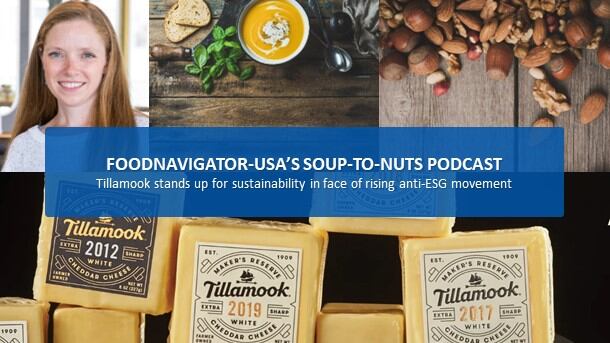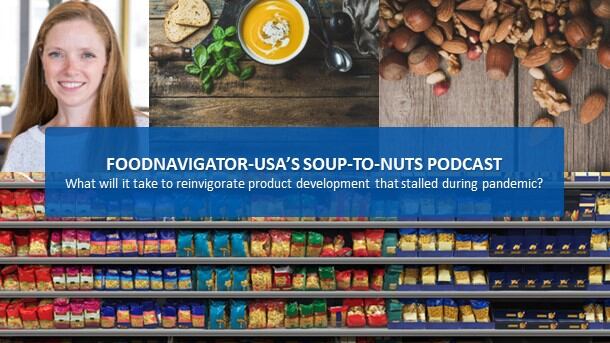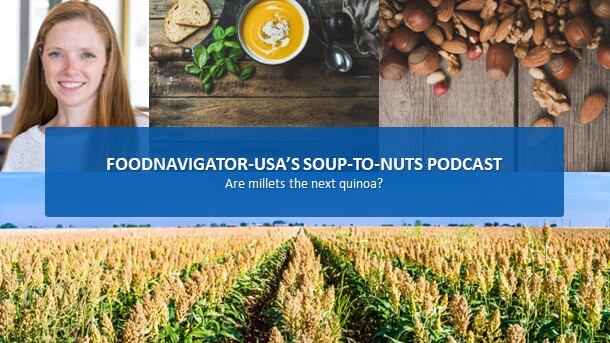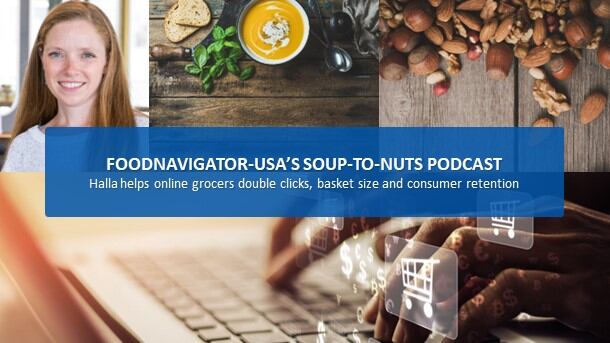On one side is mounting legislative and social pressure on investors to pull back ESG funding on which many companies rely to meet publicly stated environmental, social and governance goals. On the other are consumers who increasingly want to support companies with strong ESG values and actively shun those without.
So, what are businesses in an industry with notoriously slim margins and little financial or social wiggle room to do?
According to Paul Snyder, the executive vice president of stewardship at Tillamook County Creamery Association they need to hold the ESG line by pulling out their ledgers and proving how doing good is good for business, and then they need to follow through on their commitments.
Recognizing this may be easier said than done, Snyder shares in this episode of FoodNavigator-USA’s Soup-To-Nuts podcast how Tillamook is making good on its ESG promises, the business benefits it is delivering and what the company – and larger industry – still needs to help meet goals with fast-approaching deadlines.
[Editor’s note: Never miss an episode of FoodNavigator-USA’s Soup-To-Nuts podcast – subscribe today.]
ESG is central to Tillamook’s business operations
For Tillamook, a 114-year-old dairy cooperative and Certified B Corporation, Snyder says caring for people and the planet was a foundational value long before the trendy term ESG was coined, which makes it easier for the company to stand up for its beliefs even as the culture war around “wokeness” takes aim at ESG broadly.
“Since its founding, our farmer members have not only produced fantastic milk, which we convert into delicious cheese and ice cream, but they’ve really been leaders in their community here on the Oregon coast when it comes to supporting the economic vitality of the local area, when it comes to shepherding the local ecosystem, because of course, that’s not only something that they feel is the right thing to do, but they need the land and ecosystem to work well for their farms,” Snyder said.
He added in 2017, the company created a stewardship charter that directs management to protect six key stakeholders: the group’s cows, farms, community, employees, customers and ecosystem.
Having these values firmly rooted in the business and a track record of how these values enhance business performance is helping Tillamook hold its ground as an anti-ESG movement rises, Snyder said.
“Advocates of anti-ESG are saying … that by taking into account things like environment, societal issues and governance, you’re up-ending the true mission of any company, which is to make money. … But the fact is, if you don’t take those things into account, you lose money, you don’t preserve value and don’t actually optimize for new avenues of value,” he said pointing to research by outside groups.
“Analysis has show that ESG leads to higher margins by about 3%, so you are more profitable,” and their execution had a lower cost of capital by about 10%, Snyder added.
“Quite frankly, for us here at Tillamook and a lot of our colleagues both within the industry and other practitioners of ESG strategies in the any sector, we’re just continuing with our business. We’re going to let the fighting and screaming that’s happening in the political arena go ahead and happen” while we manage long-term risks and benefits, he said.
Tillamook’s governance and environmental priorities
One of the best ways Snyder says companies can defend ESG goals as a business priority in the current culture war is to transparently document their intentions, progress and the impact of that progress on the company – something Tillamook does annually when it publishes its Stewardship Report. https://stewardship-report.tillamook.com/2022-stewardship-report
Included in its most recent Stewardship Report, Snyder says the co-op joined the Innovation of US Dairy’s Stewardship Commitment to reach net zero greenhouse gas emissions by 2050, and set an interim goal of 30% reduction in absolute emissions by 2030.
Benchmarked against 2020 levels, the company is already making progress by transitioning its fleet from conventional diesel to renewable diesel, switching its boilers from propane to electric, reducing food waste and other strategies, he said.
Like many packaged food companies, Tillamook has focused many of its environmental efforts so far on elements that it can control – so within scopes one and two – but Snyder is planning ahead for Scope 3, which includes emissions from activities and assets outside of the company’s direct control, but which indirectly affects its value chain.
He acknowledges that tackling Scope 3 emissions can feel daunting, but, he explains there are several tailwinds that help make them more manageable and there are partnerships through which companies can work together to share the burden and speed progress.
For example, he said, most scope 3 benchmarks are scope one and two benchmarks for other companies, meaning others already are working to reduce them, and he said partnerships can help further close the gap.
To fully manage Scope 3 emissions, most food, beverage and agricultural players also will need funding, which Snyder acknowledges is a significant challenge to obtain in the current economic environment – but, he adds, help is on the way as the government increases available funding and ESG investors hold steady in face of anti-ESG pressure.
‘Tectonic’ advances in innovation on the way
Ever the optimist, Snyder says he believes “tectonic” advances in innovation will also help companies grappling with Scope three and other ESG challenges.
While he doesn’t yet know what the next wave of technology will entail, he highlighted known advances – such as using seaweed as a feed additive to reduce cows’ methane production – as examples of the diversity and creativity he expects.
Snyder acknowledged there is a debate about where to focus efforts on advancing technology – either on reducing or mitigating carbon emissions – but he argues industry should work both sides of the equation to both emit les and deal with what has been admitted.
“I don’t think when it comes to long term health and vitality of our environment, that we should leave any tool off the table,” he explained.
Even with technological advances, funding and partners, Snyder acknowledges mitigating and repairing the environmental impact of the food system is undoubtedly daunting, but he encourages stakeholders to remain optimistic and to take on what they can, when they can and know that as the near new challenges in the future new solutions will also arise.
“We have an incredibly daunting challenge in front of us. We have caused an immense amount of environmental and financial destruction as a result of not acting sooner on our impacts on the environment … but I choose to have hope and to be positive because … in the past where we thought [problems were] pretty unsolvable, the fact is that we solved a lot of them.”




